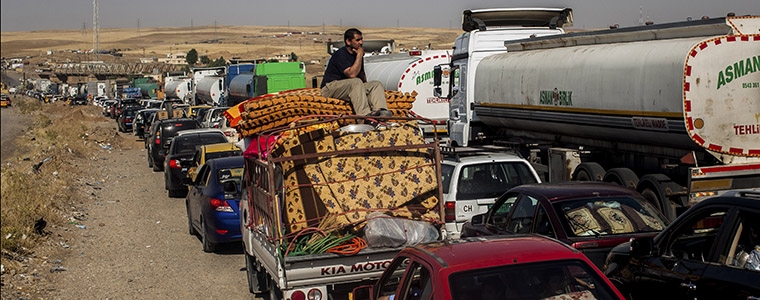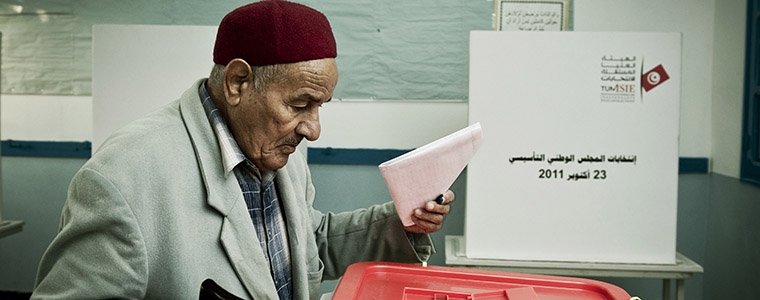عشرة أفكار عن موضوع التمديد
سألني البعض لماذا
لم أعلق بعد على قانون تمديد مجلس النواب اللبناني. الجواب انني كنت استجمع قواي
بعد طعنة جديدة ولعلها ليست الأخيرة للحياة الديمقراطية في لبنان. لقد سمعت وقرأت
الكثير-شأني شأن الكثير من اللبنانيين -من التعليقات المناهضة للتمديد أو المبررة
له. رأيي المتواضع يتلخص بما يلي:
1-
ان قرار التمديد جاء نتيجة قرار إقليمي مرده
الى عدم رغبة القوى السنية الإقليمية تكريس تراجع متوقع لحلفائهم انتخابيا في ضوء
التنامي السريع للحركة الإسلامية المتطرفة في المنطقة وتراجع الحيثية المسماة
"معتدلة" كما والى عدم قدرة إيران وحلفائها اللبنانيين
على إدارة معركة انتخابية في ظل انشغالهم في المعركة السورية. تلاقت المصلحة
السنية الشيعية على التمديد ونحرت الديمقراطية على يد قوى سنية وشيعية بتواطؤ – عن
قصد أو غير قصد – بعض القوى المسيحية من الطرفين (القوات اللبنانية وتيار المردة)
فيما وقفت قوى المسيحية الأخرى (التيار الوطني الحر والكتائب) في موقف العاجز عن
التأثير في مواقف حلفائهم.
2-
إذا قرار التمديد ليس له علاقة لا بأسباب
أمنية ولا بالاشتباك الرئاسي. هذه كلها أسباب تم اختلاقها لتبرير القرار ليس الا.
3-
بغض النظر عن رأي البعض من موقف التيار
الوطني الحر من الانتخابات الرئاسية، ان ربط التمديد بهذا الموقف ليس واقعيا ومناورة
واضحة تهدف الى تحوير الانتباه عن الأسباب الحقيقية وراء قرار التمديد أي كلمة
السر السعودية وتلاقي المصلحة – الموضوعي-مع حزب الله في هذا الموضوع
4-
لا بد من التذكير بأن التمديد الأول حصل
عندما كان الرئيس سليمان لا يزال يمارس مهامه فكيف يكون اليوم عدم انتخاب رئيس هو
ما حتم السير بالتمديد؟ لماذا لم تتم الانتخابات قبل سنة؟
5-
لا بد أن يستخلص التيار الوطني الحر وحزب
الكتائب العبرة من واقعة سير حلفاءهم بالتمديد غير ابهين برأيهم المناهض. فالتحالفات
السياسية لا يجب أن تكون باتجاه واحد بل أن تعكس تلاقي على أجندة سياسية واضحة. والا
يصبح الموضوع خدعة ليس أكثر.
6-
اما الكذبة الأكبر فهي أن التمديد سببه الوضع
الأمني والحرب في سوريا. كلنا يعلم أن هذه الحرب مرشحة أن تطول لسنوات وأن مكافحة الإرهاب
عملية طويلة لا تنتهي. هل هذا يعني ان نبقي على نفس المجلس النيابي لعشرة سنوات
مثلا؟
7-
أما فيما يخص الحراك المدني لم يكن مفاجئا ألا
يستطيع تجنيد سوى حفنة من الناشطين. عندما تكون أغلبية الشعب اللبناني فاسدة وعنصرية
وغير متبنيه لقيم حقوق الانسان فلا مجال للاتكال على الرأي العام في مواجهة
ممارسات لا تعتبرها هذه الأغلبية خطأ في الأساس
8-
اما المفاجأة في هذا الموضوع فهو استذكار
"المجتمع المدني" من قبل أطرافا ما برحت ابرز اقطابها في مهاجمته
منهجيا. يبدو أن ذاكرة الوزير سليم جريصاتي خانته عندما دعا المجتمع المدني الى
التحرك. هل أصبح اليوم المجتمع المدني شريكا جيدا والبارحة كان نفس المجتمع المدني
شرا مطلقا؟ هل يكون عمل المجتمع المدني مشبوها في مواضيع ومرحبا به في مواضيع أخرى؟
هل أصبح الناشطون سلاحا غب الطلب نستعمله متى يحلو لنا و "نشيطنه" في
مناسبات أخرى؟
9-
ان الارتكاز الى المواثيق
الدولية من قبل بعض مناهضي التمديد هو أيضا مخزي في وقت لم تتوقف نفس هذه الوجوه
السياسية عن نعت نفس المنظومة القانونية التي يبخرون اليوم بأبشع الأوصاف وبشكل
منهجي.
10-
تبقى المحصلة النهائية أن قرار التمديد ينسجم
تماما مع منظومة قيم غالبية اللبنانيين المناهضة لقيم الكرامة الإنسانية والحرية والمساواة
والتي تعكسها طبقة سياسية فاسدة أخلاقيا ليصح المثل القائل "كما أنتم يولى
عليكم". فكفوا عن التباكي وعيدوا النظر بقيمكم قبل القاء اللوم على الأخرين.
دود الخل منو وفيه.
10 thoughts about the
extension of the Lebanese Parliament’s mandate
Some people asked me
why I did not comment yet on the decision to extend the mandate of the current
Lebanese parliament. The truth is that I was trying to recover from another
hard blow to the democratic practices in Lebanon; apparently not the last one.
As most of the Lebanese, I have been reading and watching many “theories” about
this decision. Below are few thoughts:
1-
The decision to extend the mandate of the Lebanese Parliament came as a
result of a decision by regional Sunni powers not to live up to the reality of
the decline of their influence as a result of the rampant radicalization AND to
the lack of capacity of Iran and its Lebanese allies to engage in such
elections while they are busy fighting in Syria. The interests of regional
powers converged this time at the expense of democracy in Lebanon and led to a
decision that the Christian parties had to accept. This how we ended up having
political foes (Lebanese Forces and Marada) endorse the extension while others
(Free Patriotic Movement and the Kataeb) were powerless in front of their
respective allies.
2-
The extension decision has nothing to do with the security problems in
Lebanon nor with the incapacity of the Parliament to elect a new President.
3-
Irrespective of the opinion about the Free Patriotic Movement’s stand on
Presidential elections, the reality is that the extension has nothing to do
with this stand. Linking the two is not realistic. Furthermore, it is a political
maneuver to divert attention from the real reasons i.e. the Saudi decision and
the objective convergence of the Iranian-Saudi interests.
4-
It is worth reminding that the first extension in 2013 as voted while
President Suleiman was still in office. Why is it not possible today to hold
elections? Why didn’t we have elections last year?
5-
It is very important for both the Free patriotic Movement and the Kataeb
to draw the relevant conclusions from what happened last week. Political
alliances cannot be one way. They have to reflect a genuine political project
or else they become pure treachery.
6-
The biggest lie though is that the elections were postponed for security
reasons. We all know that the conflict in Syria is a protracted one and will
last for years ahead and that the fight against terrorism is a never-ending
one. Does this mean we should keep the same Parliament for 10 years? Is the
Civil Society today a legitimate partner while it was demonized a while ago?
7-
The fact that the Civil Society protests did not mobilize a lot of
people comes as no surprise. In fact, when the majority of the Lebanese do not
endorse human rights values, they cannot be relied on in fights such as this
one.
8-
What is surprising though is that some political figures “suddenly
remembered” the Civil Society while they did not refrain before from
systematically undermining the work of these organizations. The memory of
Minister Jreissaty seems to be too flawed. Can the same Civil society be “suspicious”
in some cases and called upon in other cases?
9-
Referring to the International Human rights instruments by some
politicians is another absurd approach since these same figures intended to delegitimize
the human rights legal framework for years while today they refer to it to
support their discourse?
10-
The end result is that the decision to extend the Parliament’s mandate
is consistent with the scale of values of most of the Lebanese who never
endorsed the values of Human dignity, freedom and equality. This is understandably
reflected in the practices of a morally corrupt political establishment. So
stop whining and revisit the scale of values before blaming others.





